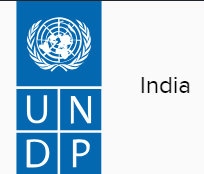Cause Area
Geographies Served
Programs
-
Health Strengthening
UNDP focuses on Health System Strengthening in India by aligning with national priorities like e-governance and Digital India. The emphasis lies on supporting states and local governance for effective program implementation. UNDP's gender-centric approach aims to enhance health service delivery, empower health workers, and ensure gender-inclusive responses, particularly in HIV programmes. The goal is to foster national ownership, sustainability, and citizen engagement, promoting institutional responsiveness, effectiveness, and accountability in delivering core services. Innovative participatory mechanisms will engage citizens, especially women and vulnerable groups, in co-creating development solutions.
-
Youth Co:Lab
Youth Co: Lab, a collaboration between the United Nations Development Programme (UNDP) and the Citi Foundation, works across the Asia-Pacific region to empower youth to advance the Sustainable Development Goals (SDGs). Launched in India in 2019 with NITI Aayog's Atal Innovation Mission, it has organised thematic challenges, dialogues, and webinars. The initiative strengthens entrepreneurial skills through regional events, fosters social entrepreneurship, and raises SDG awareness. Programmes like Springboard and Springboard Plus provide ongoing support and a virtual pre-accelerator for young SDG innovators, while Youth Co: Lab fosters connections among ecosystem stakeholders through its Youth Empowerment Alliance.
Registration Details
-
CSR Form 1
Not Available
-
FCRA
Not Available
About
-
Headquarters
New Delhi, Delhi
-
Since
1951
Impact
Since 2021, UNDP India has facilitated the administration of over 2 billion COVID-19 vaccine doses through COWIN, recognized 2 million land titles for forest-dwelling tribal communities, empowered 25,000 women and youth with career skills for employment and entrepreneurship in 2022, conserved over 3 million hectares of Himalayan natural ecosystems in 2022, processed 138,000 metric tons of dry waste, and phased out 700 tonnes of chemicals harmful to the ozone layer in the same year.
Vision and Mission
UNDP's mission is to eradicate poverty and reduce inequalities through the sustainable development of nations, working in 170 countries and territories to help countries develop strong policies, skills, partnerships and institutions so they can sustain their progress.
Political & Religious Declarations
-
Political Affiliation
-
Religious Affiliation
Location
-
Offices in Cities
Sahibganj, New Delhi, Bhubaneswar, Gandhinagar, Mumbai, Bhopal, Patna, Lucknow, Jaipur, Guwahati, Agartala, Chandigarh, Ranchi, Raipur
Other Details
-
Type
Non-profit
Website
Technology Adoption
-
SOC 2 Compliant
No
-
Financial Management
-
Beneficiary Management

